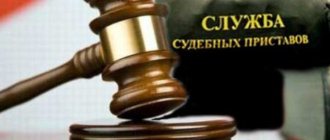The plaintiff, as an interested party, and the court, as a guarantor of respect for the rights of citizens, are equally interested in the correct interpretation of the situation that caused the appeal to the courts. An adequate interpretation is possible only with the truthful presentation of information by all parties to the legal process: plaintiff, defendant, witnesses. It happens that incorrect information is provided to one of these parties, which leads to misleading the court. This may be done intentionally or unintentionally.
Article of the Criminal Code of the Russian Federation for forged documents
Article 303 on forgery of documents in court for the purpose of obtaining benefits establishes sanctions for falsifying evidence in civil, administrative and criminal cases. The punishment for providing a court with a deliberately false document depends on the type of illegal act, as well as on the identity of the offender. It could be:
- participant in the process;
- his representative;
- an official who is authorized to initiate proceedings or draw up protocols;
- interrogator;
- investigator;
- prosecutor;
- advocate;
- An employee of the Ministry of Internal Affairs engaged in operational work.
The Criminal Code of the Russian Federation has other articles establishing liability for forgery of official documents. For example, for forgery of a document granting rights or releasing from obligations, you can be punished under Art. 327 of the Criminal Code of the Russian Federation, for knowingly false testimony in court - under Art. 306 of the Criminal Code of the Russian Federation. According to these standards, as well as according to Art. 303 of the Criminal Code of the Russian Federation for submitting false documents to the court under the Criminal Code of the Russian Federation faces punishment ranging from a fine to prison.
Falsification of evidence in civil proceedings: concept
Falsification of evidence in court is a criminal offense for which liability is provided. During the process, the parties present to the court evidence of their innocence, and the future verdict largely depends on their persuasiveness. Evidence refers to facts, information, material things and other evidence.
To increase the chances of a positive judicial decision, some citizens resort to falsifying evidence, that is, providing deliberately false, unreliable information.
But they should not forget that if the fact of falsification is revealed:
- faces criminal liability;
- the court verdict will be reviewed.
Falsification of evidence refers to the deliberate misrepresentation of facts in order to influence the outcome of a civil trial. This act has objective and subjective sides. The objective side consists of making changes to real evidence, which makes it unreliable or false.
Most often in practice we encounter the following types of offenses:
- forgery of signatures;
- distortion or additional printing of official documentation (correction of dates, signatures, etc.);
- changing the composition of the documentation (i.e. entering into it false information that distorts information);
- forgery of documents, etc.
When falsifying, a mandatory attribute is the presence of intent on the part of the criminal. Those. he must resort to misrepresentation intentionally with a personal interest in such action and be aware of the legal consequences of his actions. This is the subjective side of the crime.
If a person accidentally made a mistake in a document, then there is no talk of an offense; there will be no crime in this case.
Providing a false expert opinion to the court or incorrectly translating an official document from a foreign language also does not constitute falsification, even if these actions resulted in an unlawful judicial decision.
The moment of commission of the crime will be the date of provision of false information to the court. After which the crime will be considered committed.
The fact of falsification of evidence can be detected as follows:
- by comparing data from different sources;
- comparison of data from the certificate with information from the database archive;
- conducting a survey of persons who were responsible for submitting documents;
- comparison of signature samples;
- conducting an examination.
Not only the person who provided false evidence, but also other persons involved in the preparation of documents may be held liable. For example, a doctor who issued a falsified certificate will be held accountable as an accomplice.
Responsibility is provided not only for the participant in the process, but also for his representative in civil proceedings. In this case, the court will take into account whether there was a preliminary conspiracy between these persons.
Responsibility for providing false documents
Before moving on to liability for submitting false documents to the court, we will consider sanctions under related articles relating to forgery of papers and giving false testimony.
According to Art. 327 of the Criminal Code of the Russian Federation, one of the following sanctions is possible:
- restriction of freedom up to 2 years;
- forced labor for up to 2 years;
- arrest for up to six months;
- imprisonment up to 2 years.
If the paper was falsified to hide another crime, the maximum penalty is 4 years in prison. If a forged document is used, a penalty ranging from a fine to six months of arrest may be imposed.
It is also possible to fabricate evidence in the event of a false denunciation. This category includes cases in which there was no crime as such, and the suspect is innocent, but a statement was filed against him, knowing in advance about the citizen’s innocence. In such a situation, the punishment will be imposed under Art. 306 of the Criminal Code of the Russian Federation. The offender can receive a sentence of up to 6 years.
In court you must tell only the truth. Participants are warned in advance about the liability for giving false testimony. It is defined in Art. 307 of the Criminal Code of the Russian Federation. Under this standard, he faces up to 5 years in prison.
Note!
The guilty person can be released from punishment if he admits before the sentencing that he lied during the trial.
Do you have any questions?
To get the most detailed advice on your issue, you just need to follow any of the suggested options:
- Request a consultation using the form
on our website - Or just call the number: 8 800 350-83-74
The Supreme Court decided when information can be considered false
A resident of Yekaterinburg, Lyudmila Trafilenko*, complained about the chairman of the housing office, Inna Solodkina*, to the prosecutor’s office, the presidential administration, the police, and even the FSB. From September 2018 to January 2020, there were 23 such requests.
The applicant claimed that Solodkina allegedly killed one of her neighbors, beat children, stole money and bribed officials. In her opinion, all this was done in order to appropriate the apartments of the residents of the building in which she lives. Trafilenko also claimed that she was allegedly being forced to register an illegal migrant in the apartment who was preparing an assassination attempt on her.
Solodkina was tired of the complaints, and in 2020 she demanded through the court that all the information contained in them be recognized as untrue and damaging to her honor and dignity. The plaintiff also asked to recover from Trafilenko compensation for moral damage in the amount of 100,000 rubles. and oblige the defendant to refute false information by writing appeals to the same government agencies.
During the consideration of the dispute, the chairman slightly changed her requirements. She refused to refute the information, but otherwise left the claim unchanged.
Mandatory refutation
On August 11, 2022, the Zheleznodorozhny District Court of Yekaterinburg partially satisfied Solodkina’s claim, recognizing the information from Trafilenko’s complaints as untrue and discrediting the honor and dignity of the plaintiff. The court reduced the amount of compensation for moral damage to 5,000 rubles. The first instance also recovered 1,500 rubles from the defendant. towards legal costs.
Supreme Court decides whether email can cause reputational damage
The court considered that the defendant, due to her advanced age, is not capable of being critical of her actions and perceives the situations described to her as real. The decision also states that the district court “failed to draw the defendant’s attention to the need to carefully check the facts known only to her alone.”
Trafilenko did not agree with this outcome of the case and filed an appeal. On December 2, 2022, the Sverdlovsk Regional Court changed the decision of the district court. In his opinion of the appeal, the information from Trafilenko’s appeals cannot be considered untrue and defamatory, since the plaintiff refused to refute them. According to paragraph 8 of Art. 152 of the Civil Code, it is possible to recognize information as false without refuting it only if the defendant is unknown, the appeal explained. The cassation court also agreed with this conclusion.
The case eventually reached the Supreme Court.
“Blame” apartment
Case No. 45-KG21-26-K7 was considered by the troika, chaired by Judge Sergei Astashov.
Only the representative of the chairman of the housing office, Liana Izmailova, attended the meeting. She explained that the refusal to refute the information was due to the fact that the first instance, during the consideration of the case, repeatedly emphasized that such refutations could not be verified.
— Do you think that if there is a defendant, it is still possible to consider demands to recognize the information as defamatory and untrue? — Judge Elena Getman asked.
- I suppose so. This does not contradict established judicial practice and the meaning of Articles 151 and 152 of the Civil Code. If the courts made the decision we needed, then we ourselves could send such acts to government agencies without the participation of the defendant,” Izmailova answered.
— Please tell me why you are also appealing the amount of compensation for legal expenses?
— The courts did not recover the money for the fee in full. We spent 7,200 rubles on state duty, but only collected 1,500 rubles. The courts distributed legal costs proportionally under Art. 98 Code of Civil Procedure. But this rule should not be applied in accordance with paragraph 21 of the Resolution of the Plenum of the Supreme Court dated January 21, 2016 No. 1, since we declared claims of a non-property nature.
— The appellate court still indicated that the defendant’s statements were offensive and ordered compensation for moral damage. Why is this not enough for you? — the presiding officer asked.
— There are two points here: everyday and legal. Firstly, when the court of first instance found the information to be unreliable and defamatory, the defendant stopped filing her complaints. But as soon as the appeal changed the decision, new appeals began. Therefore, it is very important for us to recognize the information as false and defamatory. Secondly, the court could not recover compensation for moral damage without satisfying our other demands. This does not correspond to the meaning of Art. 151 Civil Code.
As a result, the three judges canceled the acts of appeal and cassation, sending the case for a new trial to the Sverdlovsk Regional Court. The reasoning part of the determination will be published in the near future, and from it it will become clear which arguments the Supreme Court paid special attention to.
*Names and surnames have been changed by the editors.
- Elizaveta Solovyova
- Civil process
Use of false documents in court
If false documents are submitted to the court, liability arises under Art. 303 of the Criminal Code of the Russian Federation. It contains four parts, each of which lists aggravating factors. The punishment for falsifying court documents will be more severe if:
- An inquiry officer, investigator, prosecutor or lawyer is suspected of falsification;
- a case of a serious or especially serious crime is being considered;
- grave consequences resulted from the forgery;
- the goal of the criminals was to criminally prosecute an innocent person, causing harm to his honor or reputation.
For civil and administrative cases, the article of the Criminal Code of the Russian Federation for providing false documents to the court defines the following types of punishment:
- fine up to 300 thousand rubles;
- compulsory work up to 480 hours;
- correctional labor for up to 2 years;
- arrest up to 4 months.
If forgery of documents in court occurred during the consideration of a criminal case, and the suspect is an inquirer, investigator, prosecutor or defense attorney, one of the following sanctions is faced:
- suspended sentence up to 3 years;
- forced labor for up to 3 years;
- imprisonment for up to 5 years.
Note!
As an additional punishment for providing knowingly false documents to the court, the perpetrator may be suspended from office for a period of up to 3 years.
If the crime occurred during the trial of a serious or especially serious violation, as well as if the actions of the perpetrators led to serious consequences, the sanction will be stricter. This means imprisonment for up to 7 years and removal from office for up to 3 years.
If the results of operational-search activities were falsified by a person participating in activities to search for criminals, the following may be assigned:
- fine up to 300 thousand rubles;
- deprivation of the right to engage in certain activities for up to 5 years;
- prison term up to 4 years.
A prerequisite for imposing a punishment for falsifying documents in court in this case is the goal of the criminal to bring an innocent person to justice, to influence his reputation and good name.
Responsibility provided for in Art. 327 CC
Art. 327 of the Criminal Code contains 3 parts.
Part 1
Maximum punishment for forgery, production and sale of false documents (official signs):
- 2 years of restriction of freedom;
- 2 years of forced labor;
- 6 months detention;
- 2 years of imprisonment.
Part 2
If the actions specified in Part 1 contributed to the commission or concealment of another crime, the maximum sentence will be:
- 4 years of forced labor;
- 4 years of imprisonment.
Part 3
The maximum penalty for using false documents is:
- penalty:
- RUB 80,000;
- income for 6 months;
- 480 hours of compulsory labor activity;
- 2 years of corrective labor;
- 6 months arrest.
Article 307 of the Criminal Code of the Russian Federation
Article 307 of the Criminal Code of the Russian Federation establishes periods of punishment for an illegal act. In determining its duration, the qualification of the criminal act according to its composition is decisive.
| An object | An object. side | Subject | Subject. side |
| public relations that ensure a complete and objective consideration of the case; optional – honor and dignity of a person | • actions of an individual that are socially dangerous, misinforming law enforcement agencies, courts regarding the circumstances of the case • unreliable information from witnesses, experts | persons over 16 years old | • direct intent; • human actions are aimed at misinforming the competent authorities; • the person informing understands their meaning, and also commits them intentionally, realizing the consequences |
We can talk about falsity of testimony if the information conveyed to the competent authorities is distorted. In addition, information is suppressed. For example, a witness speaking in court does not say that there were third parties at the scene of the unlawful act. Or an expert describing a woman’s injuries is silent about the presence of signs of rape.
Responsibility for these actions occurs if they are committed in the course of procedural actions within the framework of the law. Based on this, giving information that is knowingly false cannot be considered a crime if the information was received by a person who does not have the right to do so. Or, if none of those who provided incorrect data were warned of possible liability for this.
In terms of the elements of the crime, they are formal. It is taken into account that the crime is over from the moment of testimony.
False testimony in civil law
According to Art. 30 of the Code of Civil Procedure of the Russian Federation, a person participating in civil proceedings is obliged to give evidence that corresponds to reality. Otherwise, the law provides for the consequences provided for in Art. 307 of the Criminal Code of the Russian Federation. The witness is also required to answer for testifying, but in practice this happens infrequently.
The situation is explained by the fact that the provisions of the Civil Code of the Russian Federation contain possible consequences in the event of deception by one party to the contract by the other. For example, in matters of failure to provide truthful information about a product or its expiration date. And also a message that the subject of the contract is under encumbrance.
If one party informs the other of false information that relates to the subject of their agreement, then the consequences of Art. 179 occur. GK. The transaction is declared invalid. The claim of the injured party is subject to satisfaction in court.
Judicial practice under Art. 327 CC
Responsible for providing counterfeits under Art. 327 of the Criminal Code, individuals are involved. Individual entrepreneurs and heads of organizations bear administrative responsibility for forgery of documents under Art. 19.23 Code of Administrative Offences. However, depending on their composition, they may also be subject to criminal punishment, but under other articles of the Criminal Code.
Case No. 2a-2247/17
Please note:
Criminal liability for signature forgery applies only to official documents. The court establishes punishment depending on the circumstances of the offense, up to imprisonment for up to 4 years. Read more in the article here
Deputy Prosecutor of the Tver Region M.A. Suvorkov filed an administrative claim in court to ban information posted on certain Internet resources. On these sites, certificates were sold without visiting a medical institution and, accordingly, without undergoing an examination. This included certificates for presentation to an educational institution, a swimming pool, work, and others.
The defendant in the case of PJSC Rostelecom filed a response with a request to refuse the plaintiff’s demands on the basis that the administrative defendant is not appropriate (Article 15.1 of the Federal Law No. 149 “On Information...”, paragraphs 5, 9 of Article 2 of the Law "About information...").
The court's decision
The free dissemination of medical reports has adverse consequences for the health of citizens, including minors, if they have contraindications to engage in certain types of activities. In this regard, on the basis of Art. Art. 175-180, 188, 298 CAS, the court decided to satisfy the claim and recognize the information posted on these sites as prohibited.
Case No. 1-80/17
Aitov I.I. in July 2016, he installed gas equipment on the bus, but did not register it with the traffic police due to lack of time. Thus, this equipment was not included in the vehicle registration certificate. For this reason, Aitov purchased a fake certificate via the Internet, paying 11,000 rubles for it. He presented this document upon request to traffic police officers while driving.
During one of these checks, the inspector had doubts about the authenticity of the certificate, since its quality did not correspond to the samples issued by Goznak. Aitov was forced to admit committing a forgery. The false certificate was confiscated from him in the presence of witnesses.
Case materials
The defendant's guilt is confirmed by his own confession, witness testimony, expert opinion and other evidence. When assigning punishment, the following mitigating circumstances were taken into account:
- full admission of guilt;
- minor severity of the act committed;
- no previous convictions;
- absence of drug addiction and mental disorders;
- positive characteristics from the place of residence.
There were no aggravating circumstances.
The court's decision
Guided by Art. Art. 307–309, 322 of the Code of Criminal Procedure, the court issued a conclusion on the guilt of Aitov I.I. and sentenced him to pay 10,000 rubles. fine in favor of the state.









